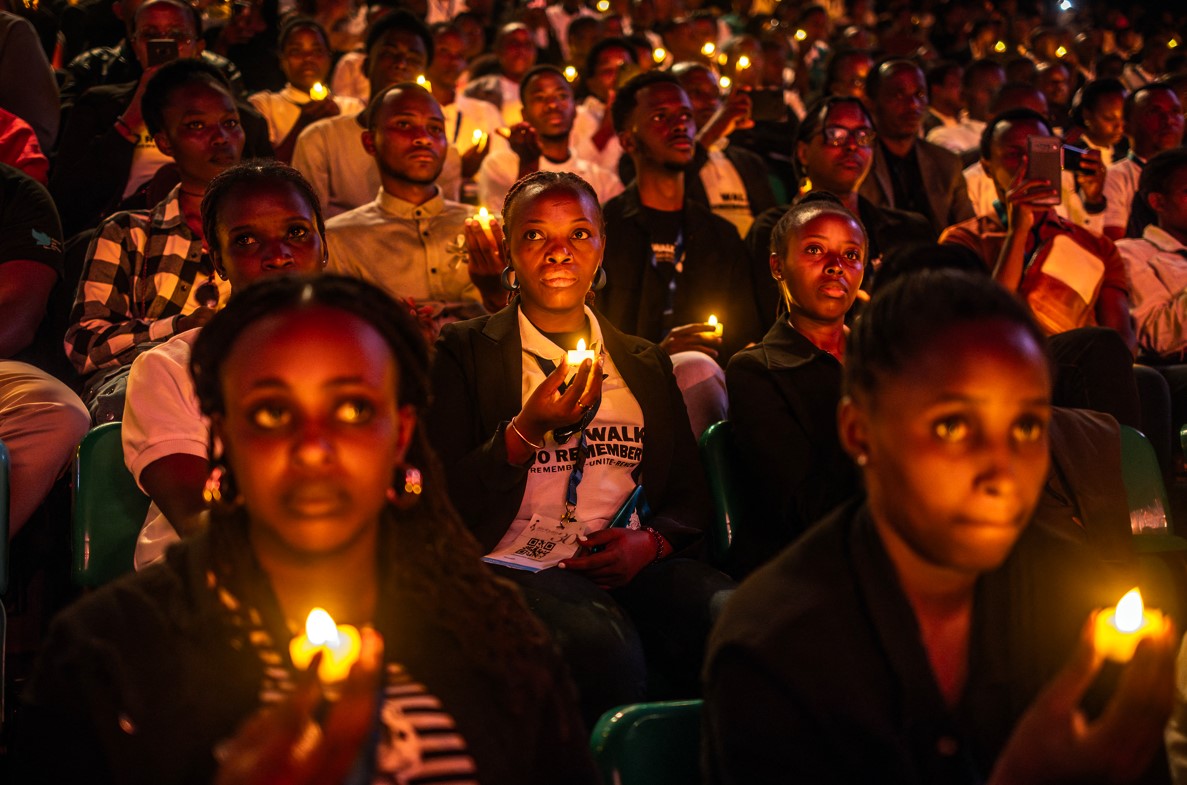UN Secretary General warns of rising hate speech as world marks 31st commemoration of Rwandan Genocide

Rwandan High Commissioner to Kenya Ambassador Martin Ngoga termed the day as a period of profound sorrow and deep reflection not just for Rwandans but for humanity as a whole.
United Nations Secretary-General Antonio Guteres has called on the world to learn from the events of the 1994 Rwandan Genocide and act to stop the tide of hate speech, disunity and discontent that is mutating into violence in many countries while upholding human rights and ensuring accountability to avert possible genocidal acts.
His message was read out by the Director General of the UN Office in Nairobi Zainab Hawa Bangura at the UN Complex in Gigiri where members of the Diplomatic community, foreign nationals and Kenyans congregated in commemorating the International Day of Reflection on Genocide against the Tutsi in Rwanda under the theme; "Remember.Unite.Renew".
More To Read
- Historic Algeria declaration frames colonialism as multidimensional crime
- Türkiye issues arrest warrant for Israeli PM Benjamin Netanyahu over Gaza war
- Windhoek’s Old Location was a place of pain, but also joy - new book
- World leaders denounce Gaza war as ‘genocide’, demand two-state solution
- UN commission says Israel is committing genocide in Gaza
- Rwanda calls Human Rights Watch's count of new graves at military cemetery "disrespectful"
Guteres noted that these are days of division when the narrative of us versus them is polarising societies and digital technologies are being weaponised to further inflame hate, soar division and spread lies.
"Today, we mourn the more than one million men, women and children slaughtered in the 1994 genocide against the Tutsis in Rwanda. This appalling chapter in human history was not a simultaneous frenzy of violence, it was intentional, premeditated and planned through hate speech that inflamed division and spread lies as well as dehumanisation. An overwhelming majority of the victims were Tutsis, also Hutus and others who opposed the genocide," he said as he called upon the world to reflect on the day and become parties to the convention on the prevention and punishment of the crime of genocide.
One of the genocide's victims, Dimitrie Sissi Mukanviligira, gave a moving account of how she survived days of torture at the hands of her would-be killers who held her hostage after her kin were killed during her school's Easter holiday 31 years ago.
She miraculously lived to tell the story that is also documented in her book titled "Do no accept to die".
Rwandan High Commissioner to Kenya Ambassador Martin Ngoga termed the day as a period of profound sorrow and deep reflection not just for Rwandans but for humanity as a whole.
"We must ensure that the lessons of the past are not forgotten. We stand here in remembrance of over one million lives, brutally killed in one of the darkest chapters in human history. We honour the men, women and children whose lives were cut short simply because of who they were. We honour their memory other just in mourning but in our commitment to ensuring that such actions do not happen again anywhere in the world," said Ambassador Nyaoga, who also acknowledged the strength and resilience of the survivors and their contributions to the country's healing.
He warned that genocide is not an isolated event but a result of hate speech, ethnic discrimination and dangerous rhetoric that fueled the genocide against the Tutsis but are unfortunately on the rise again in different nations.
"There are those who are attempting to rewrite history, downscaling the scale of the atrocities or even intensifying the crimes. This is not just an insult to the victims and survivors, it is a dangerous foundation for future violence. We must remain vigilant and steadfast in our communities to counter these threats before they escalate into violence," the former prosecutor added and urged everyone to stand firm against hate speech regardless of where it comes from.
At the same time, he challenged countries still harbouring genocide perpetrators of genocide to act, noting that genocide is an international crime that can be prosecuted anywhere.
"This commemoration is an international plea to members of the international community to ensure the arrest of perpetrators. No matter their nationality, genocide perpetrators should be subject to legal structures," he urged.
The Deputy Director General in charge of the Africa Affairs Directorate at the Ministry of Foreign and Diaspora Affairs, on behalf of PS Korir Sing'oei said Kenya stands against groups or individuals that propagate genocide.
He further noted that some of the situations that propagate mass atrocities also include instances when leaders manipulate identity for political gain and when extremists spread fear and hatred.
A candle lighting ceremony, a moment of silence and a walk between the complex and the Rwandan High Commission also took place as part of the commemoration's activities.
Top Stories Today












































